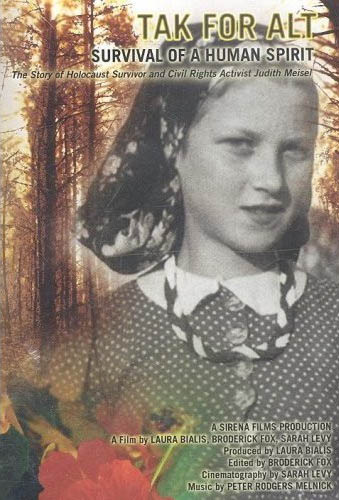B’nai B’rith Recognizes Work by SB’s Judy Meisel
Holocaust Survivor Advocates Peace, Helped Build County's Jewish Preschool

“I hate hate.”
One could say that Judy Meisel has a star hanging over her head – a symbol of the luck that follows her wherever she goes. Having survived the atrocities of the Holocaust as a child, she continued on to become a civil rights activist, marching with Dr. Martin Luther King Jr., and adopting the role of rallying against the dangers of anti-Semitism throughout the nation. On Saturday, March 1, Meisel will be recognized by the B’nai B’rith Temple for her devoted and faithful contributions of nearly two decades to the Beit HaYeladim preschool, the first Jewish preschool in Santa Barbara. Born on February 7, 1929, in Josvainiai, Lithuania, Meisel – now a wife, mother and grandmother – joined the operation in 1983, and dedicated 36 years of building a community within the temple’s preschool. Meisel’s vision was simple: “I wanted to give the children a sense of their faith, I wanted them to know what the Sabbath was, and the words to the prayers, to understand what they were listening to so they could be apart of the ceremony,” she said.
It was Meisel’s fervent belief that an early Jewish education was the best gift a parent could give to their child. “I don’t know what I am being awarded for, really,” Meisel said, leaning across the table in an almost secretive manner. “I have no money to give, only myself, and they are awarding me for this?” she laughed and shook her head, “I don’t understand. If all we have to give is ourselves and our time, why should we be rewarded? This is part of the Jewish religion: if we can help one life, Jewish or not, we have succeeded. I am only living by this.”
Regardless, Mrs. Meisel has been affectionately described as the “soul of the preschool,” the person whose heart and creativity, ideas and passions, hopes and dreams have developed into something very great and very strong. Having received her early childhood education degree, Meisel made several alterations to the traditional methods of teaching. “I was always on the ground!” she said, “When you are bigger than them, you have to be on their level. They have to know it is safe with you and that you can relate to them.” Meisel also added events to the preschool curriculum such as Thanksgiving feast, in which members of all ages would gather to eat together, and untraditional trips to the elderly homes, in which Meisel would take the children and have them play, read and sing with the men and women confined to these facilities. “Bringing joy to others, and caring for others is a part of Judaism, and I wanted the children to understand that,” she said.
The Temple has decided that it was long overdue that they award Meisel for her unfailing support and her faithful contribution to the preschool. Today, Meisel -the subject of the book Tak for Alt and a subsequent documentary – continues her quest to spread awareness of the dangers of anti-Semitism and racial hatred throughout the country. She witnessed mothers being torn from their children, babies being shot, and her own mother being forced into a gas chamber. Upon arriving at the Stuttof concentration camp after three years of working as a slave labor in the Kovno ghetto, Meisel’s hair was torn out. She watched as her mother’s three gold teeth were pulled out. Yet she survived. “I travel all over,” she said of her efforts to publicize the dangers of anti-Semitism. “I talk to schools, students and teachers. Because I lived through such hatred, I want others to know the dangers of it, how much pain and suffering hate can bring: The best form of safety is awareness.”
One of the things which make Mrs. Meisel so extraordinary, perhaps, is that she remains a hero, not only for suffering and surviving the Holocaust, but for being an active advocate for the battle against hate. “I hate hate. Hate is the destroyer of all things, and having seen such hatred in my life, I know how powerful it can be. Look at Germany, the most intelligent, modern and sophisticated country, wrapped up in such hate that it could nearly destroy an entire race. It’s barbaric to me, but it happened. I don’t see why it couldn’t happen again,” It is this that fuels Meisel’s desire to prevent hatred and spread awareness through her story and her survival. “No one knows how much they can endure until they are forced to endure it. Look at me, I was sixteen when I arrived in Denmark, I was forty-seven pounds and had tuberculosis, but I survived.” Meisel has survived this and more. “The images of pain and hate cloud my mind, but I try and take them and do some good, it’s the most I can do. All it takes is one person.”
Anyone who is interested in making a contribution to the Judy Meisel Scholarship Fund, please send it to the B’nai B’rith congregation, 1000 San Antonio Creek Rd, Santa Barbara, 93111.



